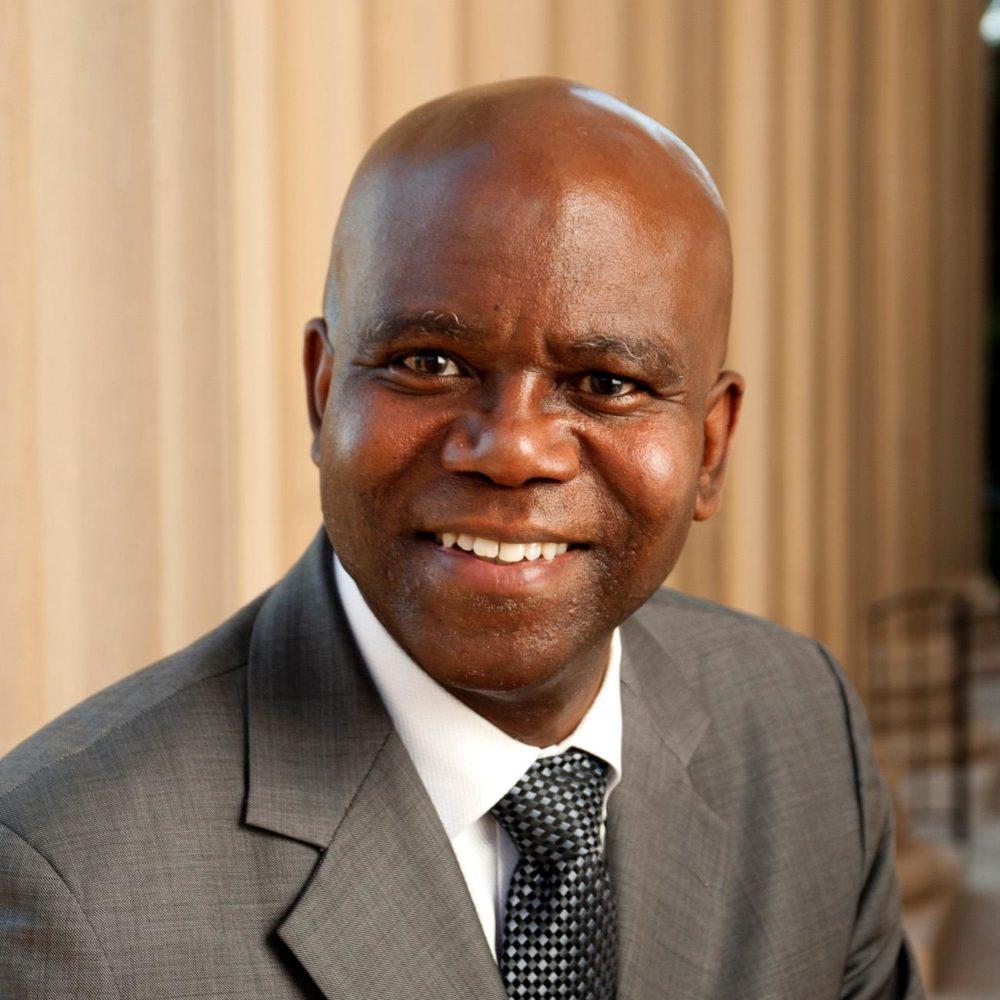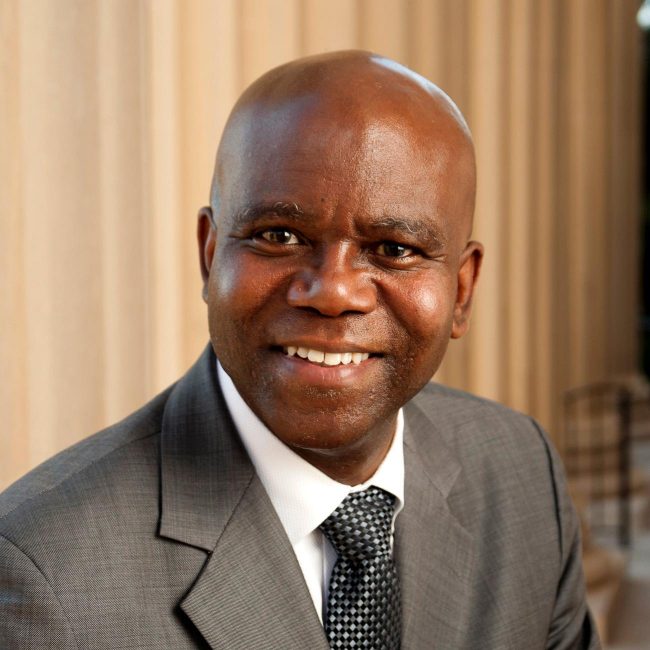
Eric Bing is the director of global health at the Bush Institute. (Courtesy of Eric Bing)
Most students haven’t heard of Eric Bing yet.
“He’s been a well-kept secret around the university,” David Chard, dean of the Annette Caldwell Simmons School of Education, said.
He’s been a secret because the office he’s usually at isn’t in the Simmons Building, Clements or Dallas Hall.
It’s in the George W. Bush Presidential Center, because Bing is also the Director of Global Health for the Bush Institute.
Bing, who has been working for the Bush Institute since 2011, received professorship with tenure at SMU in March of this year after being actively pursued by the university for several months.
“We are really excited to have Eric Bing join the faculty,” SMU President R. Gerald Turner said in a recent interview with The Daily Campus. “He may be one of the best known Americans working on health issues in Africa.”
In addition to his world-renown research, which received over $140 million in grant support, Turner hopes that this appointment will help bridge programs between the university and the center.
“I’ll be fifty percent at the institute and fifty percent at the university,” Bing said.
Bing’s journey to SMU wasn’t a simple one. Before joining the Bush Institute, he’d worked at Charles R Drew University, a medical school in Los Angeles since 1991.
When the Bush family asked him to join the institute, he didn’t know how to feel.
“I heard about the job, and it was perfect for me, but I was not political, I was an academic,” Bing said.
When Bing realized that his office at the Bush Center would be on the heels of SMU’s campus though, he was sold.
After arriving in Dallas, he made friends with several notable people from SMU, including Provost Paul Ludden and Chard.
“At the time there was no indication he was going to become part of the faculty,” Chard said, “We were just talking about things we could work on together.”
Eventually, Bing had a meeting with the associate provost, Linda Eads, about possibly becoming a professor at SMU.
“We had to work with him and see if he wanted to be on our faculty,” Eads said. “And when he did, we had to find out where he would fit in best at the university.”
Bing’s background might make it seem that his niche at SMU would be in the pre-med program, but he didn’t necessarily think so.
“I was at a medical school for 20 years,” Bing said, “and what I learned was that there are many things affecting health care in underdeveloped countries that aren’t medical.”
He instead decided to apply to teach at the Simmons School of Education, where he felt he could fulfill his passion of helping students to find their callings.
Bing was the second employee from the institute that Dean David Chard appointed to teach at the education school.
The first was Jim Guthrie, an expert in education administration, who became a fellow at the Bush Institute after years of teaching of Vanderbilt.
“When we hired Guthrie, it was a precedent setting incident,” Chard said.
“There were previously concerns among faculty that the Bush Institute would freely name teachers.”
According to Chard, there was some worry that in order to attract high-profile scholars to the policy center, the institute might make promises, including tenure at SMU.
But, if Guthrie’s experience was any indication, the worry was mostly for naught.
There’s an 800-page contract that clarifies the relationship between the institute and the university. Chard says Guthrie’s appointment followed it to the tee. So too, did Bing’s.
“He went through the whole process to get it done,” Chard said, “And that’s what the faculty really wanted.”
The appointment was even more complicated because unlike Guthrie, who has since moved on to become the superintendent of public schools in Nevada, Bing applied for tenure, meaning he had to go through additional reviews and evaluations.
“Eric came younger and wanted to build on the network that he had already established in Africa and use the Bush Institute and SMU as an opportunity to expand on the work that he had already done,” Chard said.
According to Linda Eads, the addition of tenure wasn’t the most difficult obstacle that Bing faced during his application to the university.
“His review was a particularly strenuous process because of him going through two schools,” Eads said.
After all, Bing didn’t apply at just Simmons, but also to teach anthropology and psychology at Dedman College.
Therefore, both schools had to go through separate voting processes before declaring Bing a professor.
Eads, who worked closely with Bing during his approval process, believes he will be able to bring more to the table than just his scholastic abilities.
“Mr. Bing is an exceptional scholar. But he takes his scholarship to the next level by doing public good,” Eads said. “For example, what he’s doing in Africa is incredible.”
Bing has been working in countries including Angola, Rwanda and Nigeria for many years.
“Places like that don’t have a lot of services,” Bing said, “So you get to go and develop services with the people. They understand the services, but they need a little push to implement them.”
During his presidency, Bush helped create many services to stop the spread of disease in Africa, one of the most notable being the President’s Emergency Plan for AIDS Release in 2003.
And since Bing has been in Dallas, he has been working in line with the objectives of the Bushes researching innovative ways to develop new services alongside institute members and SMU faculty.
According to Eads, he has been working with SMU Computer Science and Engineering professor Suku Nair to develop iPhone technology that will allow people in small villages to send pictures of injuries and send them to doctors in cities across the world for diagnosis.
“Don’t be fooled by Bing’s medical and business degrees,” Nair said, “He is very tech-savvy, and he’s always looking for a way to bring technology to problems.”
Despite their differing backgrounds, Nair and Bing have become fast friends, in part due to Bing’s optimism.
“He wants people to be successful.” Nair said, “He wants to help the success come about, and he wants to be part of it.”
And interns that work under Bing at the Bush Institute are seeing this.
“It’s so rare, especially in the professional world to see someone of his stature willing to provide so much time and energy to help people,” Suraj Patel, who has been an intern at the institute since March 2012, said.
Patel, 26, sent Bing a blind e-mail looking for a job. He says that he expected, after looking at Bing’s online profile, for the man to be very busy and matter of fact.
“But that definitely wasn’t the case,” Patel said, “He was caring, compassionate and supportive.”
After several phone meetings, and a face-to-face interaction, Bing offered Patel the chance to work as an intern at the institute.
And since then, Patel and Bing’s relationship has grown tremendously.
“He’s become a great mentor in my life,” Patel said, “He’s someone that I go to for advancing my career path, but also for advice on decision points in my life.”
Patel was recently accepted to University of California at Berkley’s MBA program, and he says that he owes much of that opportunity to his work with Bing.
“No one else would have worked nearly as hard to help me get into grad school,” Patel said, “And I know that even if I move 1500 miles away this summer, he’ll still be a huge mentor of mine.”
But that’s if Patel decides to go. He says that the prospect of spending another year under the tutelage of Bing may be worth postponing grad school.
“A year ago I would have ecstatic and taken that opportunity in a second,” Patel said, “But now, I want to spend an additional year at the institute because I know how rare it is to have someone like this in my life.”
It was this ability to play the role of mentor that brought Bing to want to teach at SMU and work with young people.
“I love students. I really, really love students,” Bing said, “And the students here are fresh and make me think.”
Bing, who worked at a medical school for 20 years, now has the opportunity to see students of all majors.
“I can go any place. I can spend time in engineering or education or general studies,” Bing said.
“Each environment has a different culture and I work hard to learn the culture of all of them.”
Bing says that even after coming to the Bush Institute, he didn’t appreciate all that SMU has to offer, and he’s still learning what’s here.
“I’m around people very different from me and I’m learning a tremendous amount from them,” he said.
Bing hopes that one day he’ll be able to teach a course on student development, where he helps them discover and embrace their passions, as he has with Suraj Patel.
And the university has been very supportive of this dream.
“He could easily teach a class where students think through how their talents can apply to something they are passionate about,” Eads said.
Dean Chard believes that Bing is, at heart, a career developer, and that his abilities to mentor junior people should definitely be utilized at the university.
“If you’re a young person and you have a chance to work with Eric, you’ll walk away with a lot of experiences and opportunities,” Chard said.
For the time being though, Bing is not teaching a class like that, or any other.
Though he gained his professorship earlier this semester, it was too late for him to teach this school year. In the fall, he hopes to teach a class on global health or epidemiology.
And it seems as though SMU is happy to see him to do so.
“I’ve had the opportunity to do many wonderful things as associate provost,” Linda Eads said.
“But there are two things that I hold above the rest. One is getting the human rights major approved and the other is hiring Eric Bing.”









